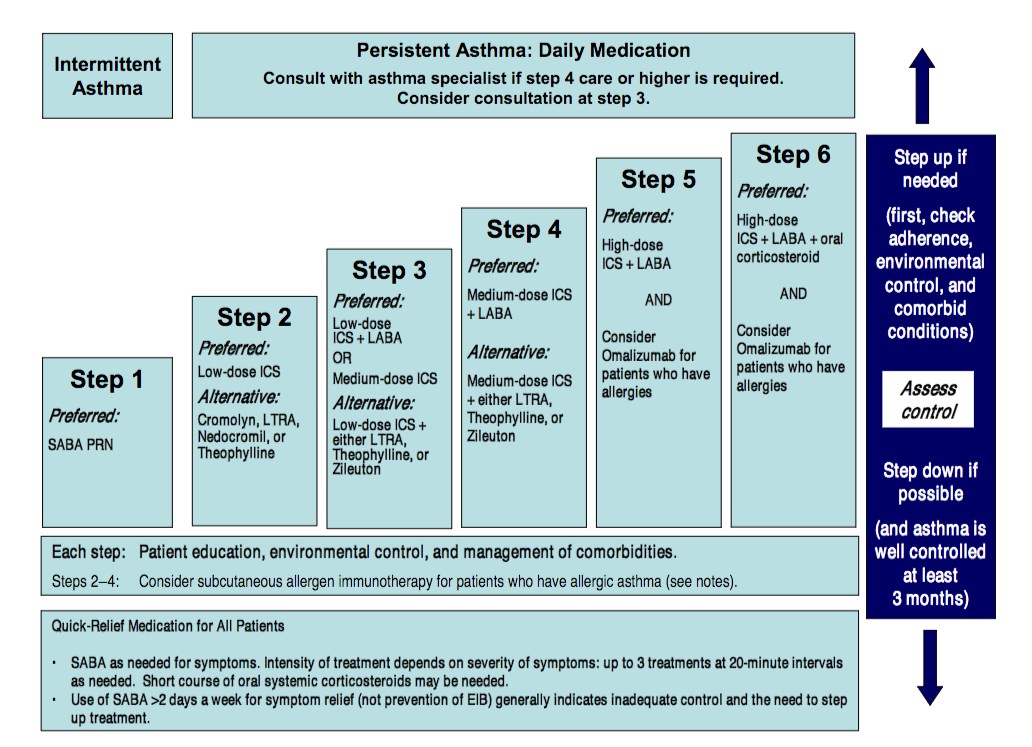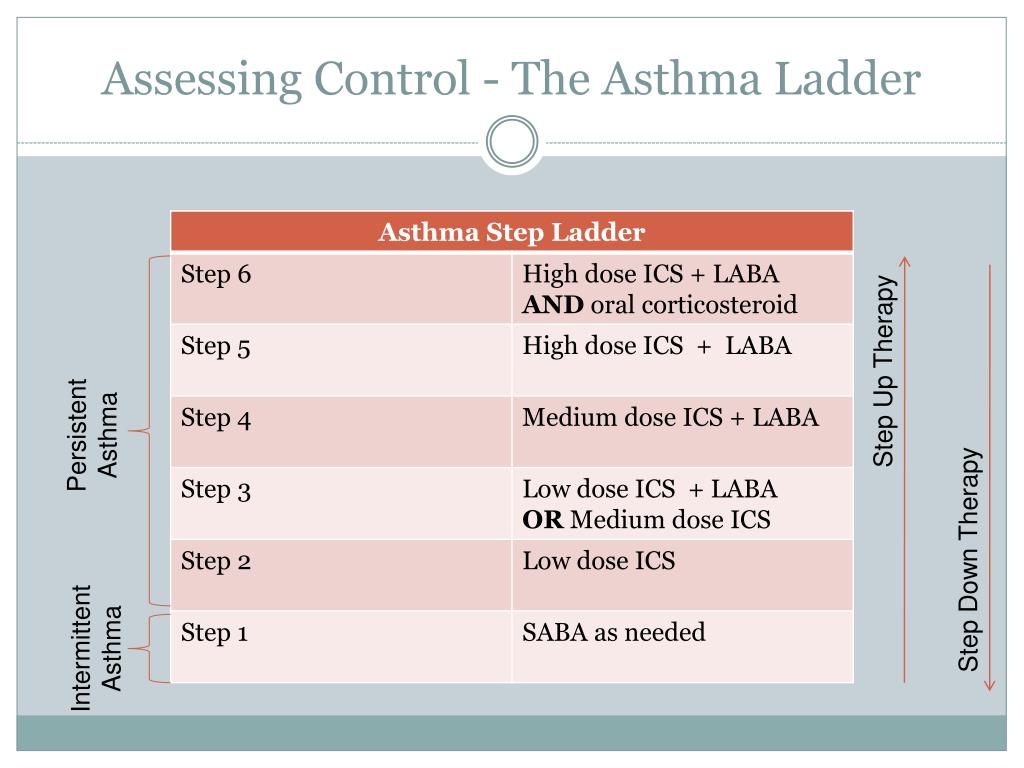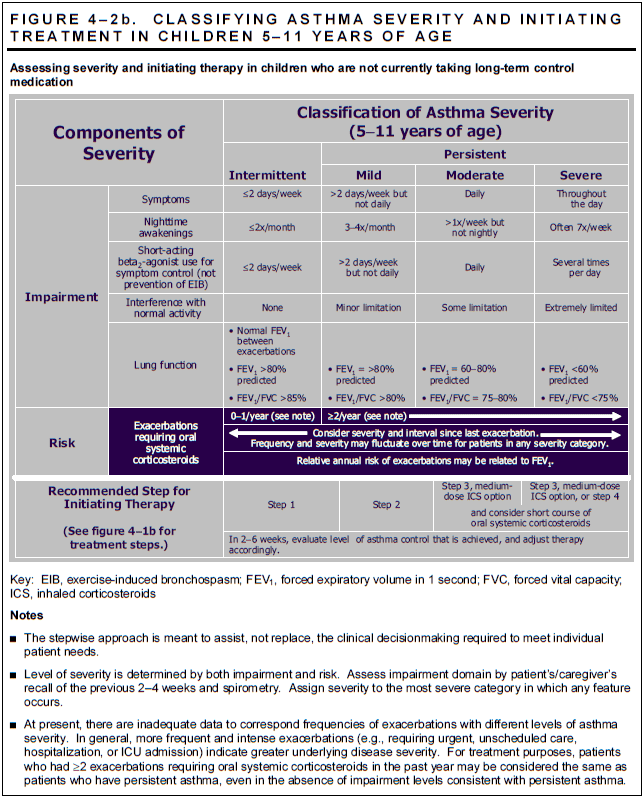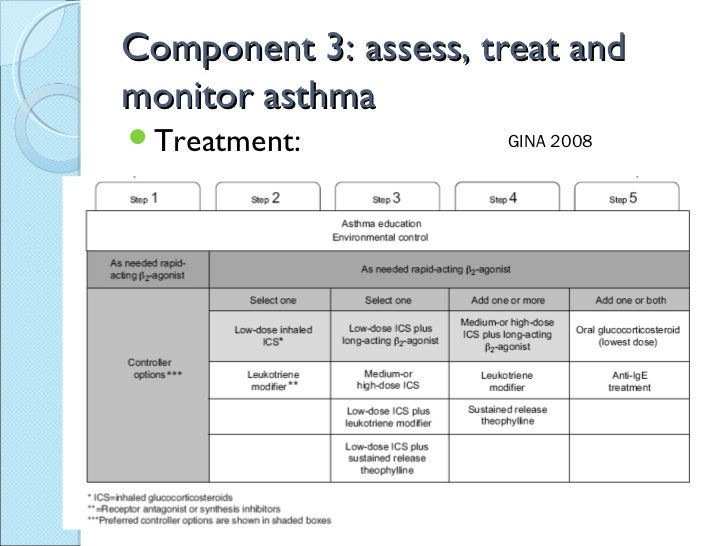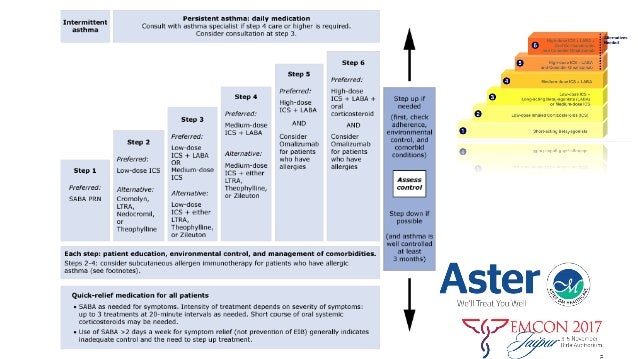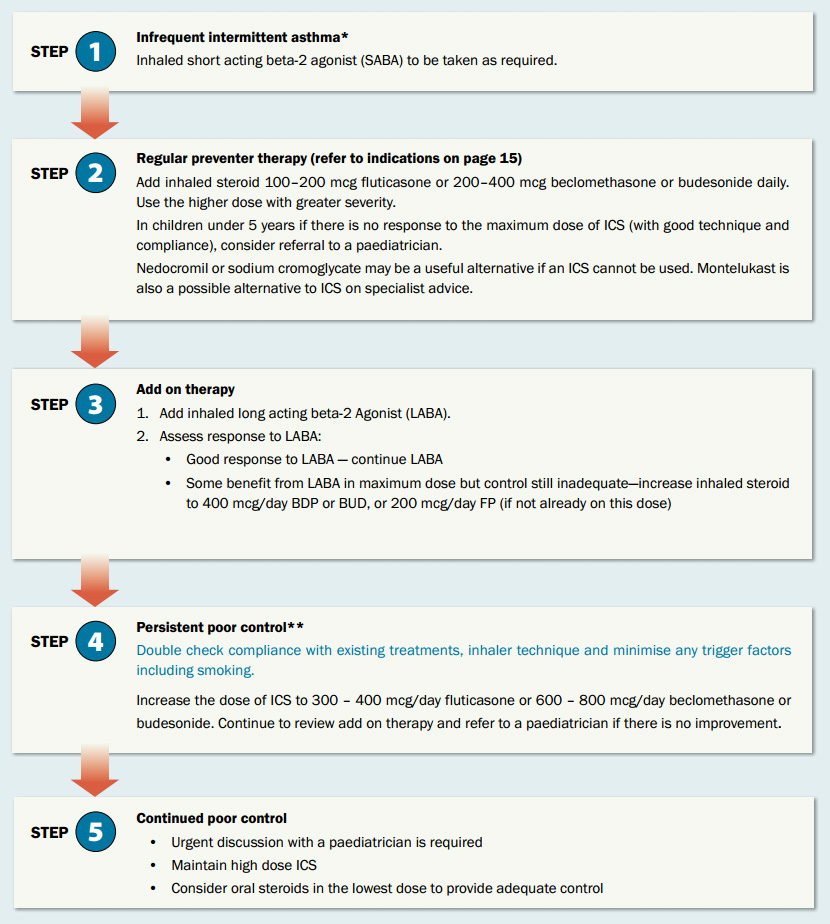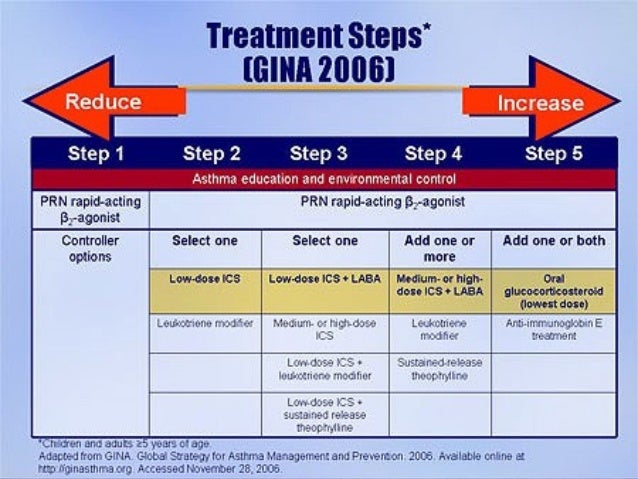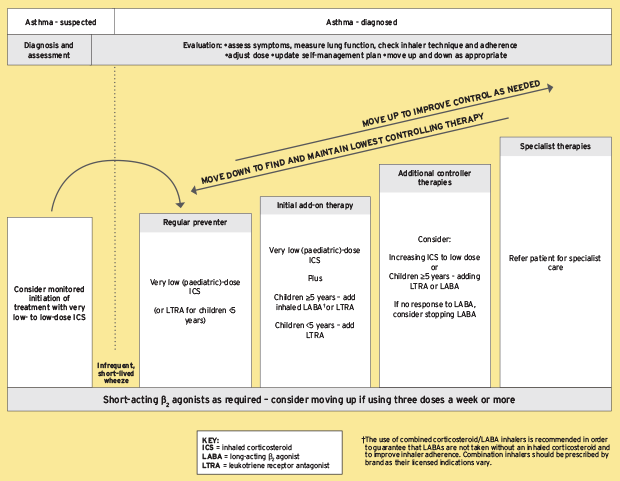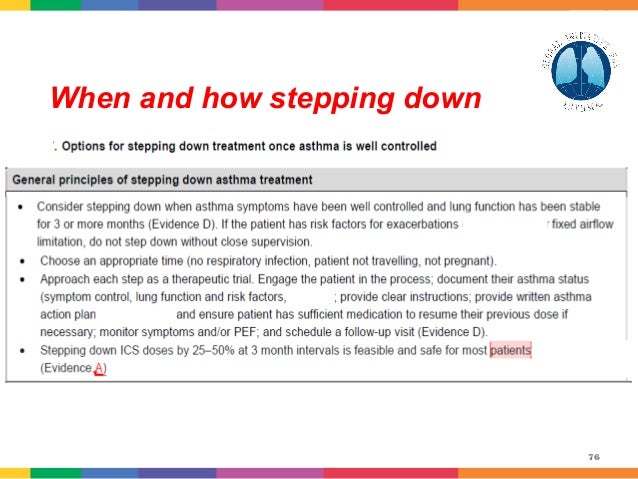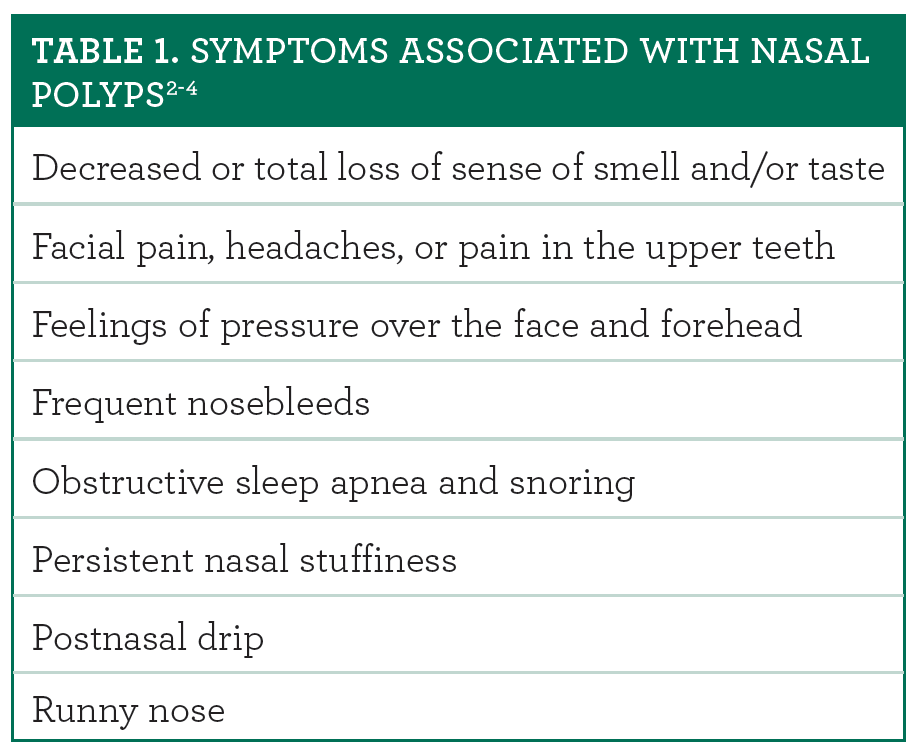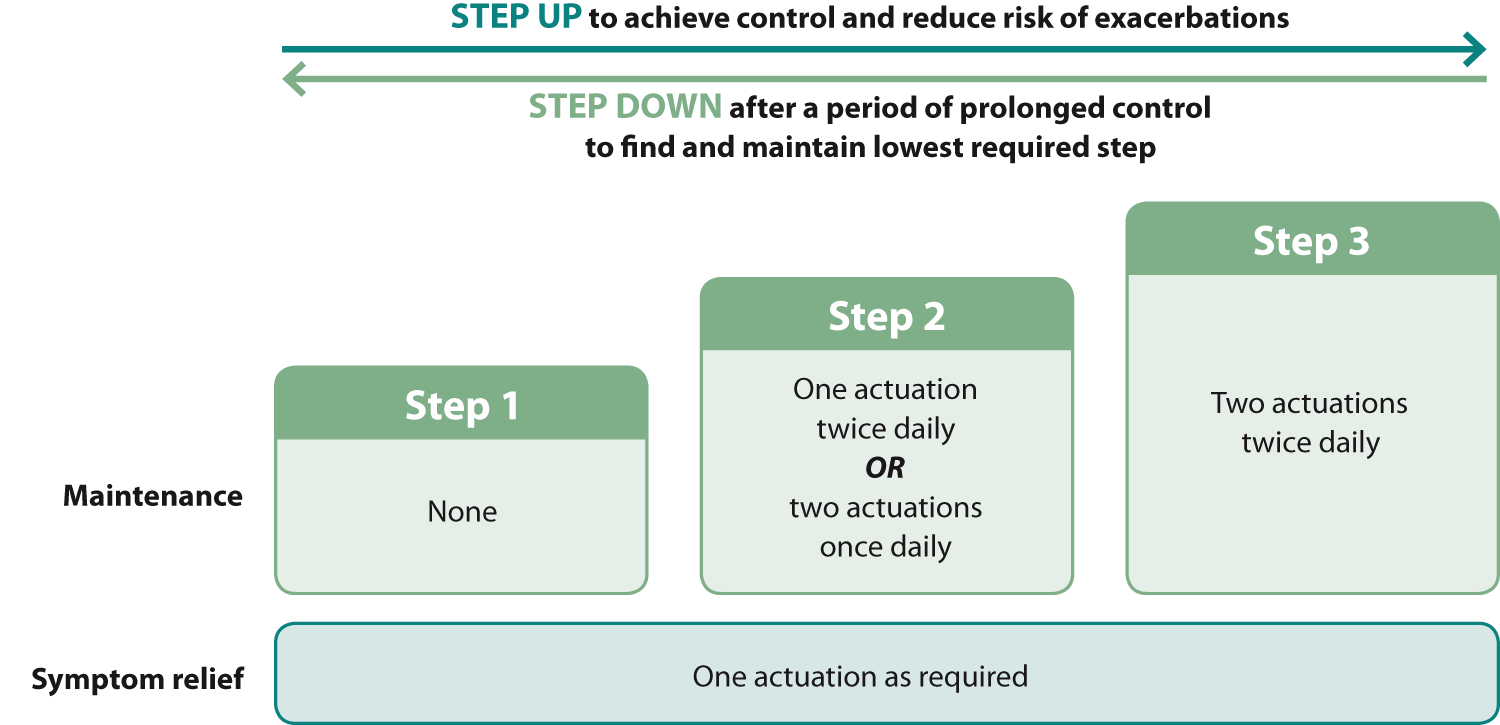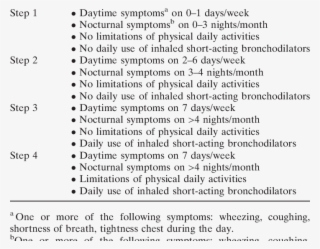Step up if needed first check inhaler technique adherence environmental control and comorbid conditions assess control step down if possible and asthma is well controlled for at least 3 months step 1 step 2 step 3 step 4 step 5 step 6 intermittent asthma persistent asthma.
Asthma step up ladder.
Re evaluate in 2 weeks.
Some individuals with smaller lungs in relation to their heig t suc a a thin individual with narrow a p diameter to their chest may normally have fev1 80 and or fev1 fvc 85.
Step up if needed.
32 glossary of asthma medication classes.
This summary focuses on recommendations for the management of asthma in adults including diagnosis monitoring pharmacological management and management of acute asthma.
Step up 1 step.
A stepwise step up if necessary and step down when possible approach to asthma management continues to be used in the current guidelines and is now divided into 3 groups based on age 0 4 y 5 11.
This guidelines summary is part of a series of summaries of the british thoracic society scottish intercollegiate guidelines network guideline 158.
Step 1 occasional relief of symptoms as required inhaled short acting b 2 agonist given to all patients step 2 inhaled corticosteroid ics beclometasone or budesonide 200mcg twice daily if using qvar 100mcg twice daily step 3 long acting b 2 agonist laba formoterol 12mcg twice daily or salmeterol 50mcg twice daily 4 week trial.
Re evaluate in 2 6 weeks.
Every 2 6 weeks while gaining control every 1 6 months to monitor control every 3 months if step down in therapy is anticipated use of medications.
Step up 1 2 steps.
Asthma causes sympt oms such as wheezing shortness of breath chest tightness and cough that vary over time in their occurrence.
British guideline on the diagnosis and management of asthma.
Follow up after an exacerbation.
L u ng f ctio measures should be.
Asthma is highly variable over time.
The 2019 update includes a complete revision of the section on monitoring asthma including new information on predicting future risk of asthma attacks and updates to the sections on pharmacological management of asthma supported self management non pharmacological management of asthma and management of acute asthma in adults and children.

